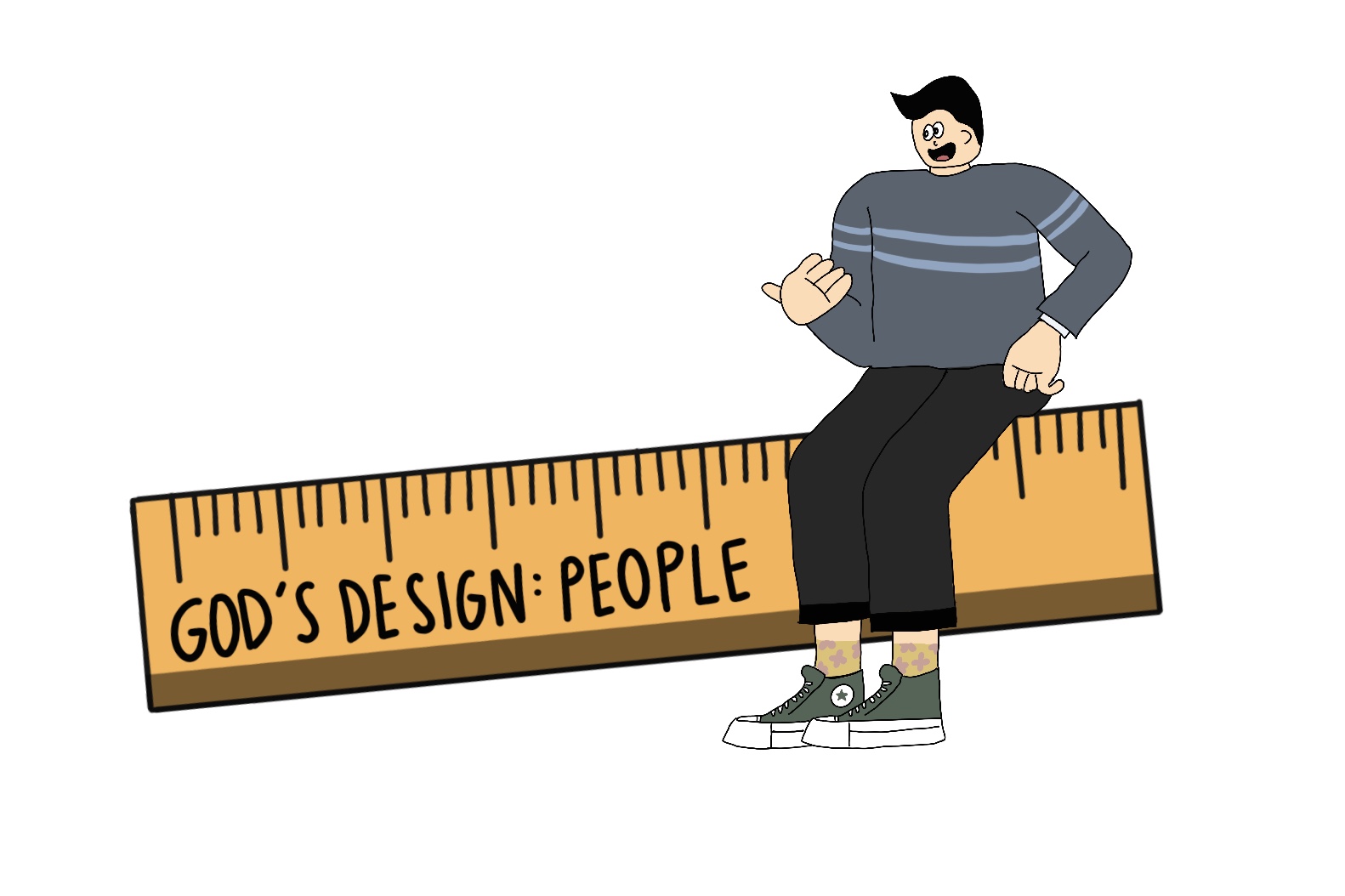Today, few topics are as fiercely contested as sexuality.
With the local spotlight widening on matters of sexuality and gender neutrality, it can be a confusing time for Christians.
How do we make sense of it all? And how does it inform our actions, attitudes and advocacy?
Standing up for God’s design is not easy, but here are my reflections on what it requires of us after attending Momentum Series 2021, an online conference organised by LoveSingapore.
GOD’S DESIGN DEMANDS FAITH
Do you trust the One behind the design of your life? And do you trust the One behind the design of your body?
Pastor Joel Peh of 3:16 Church and his wife, Mavis, explained that our answers to these two questions are crucial to how we understand God’s design when it comes to matters of sexuality.
Explaining what “God’s design” referred to in their discussions on sexuality, Mavis referenced Genesis 1:27:
“So God created mankind in his own image,
in the image of God he created them;
male and female he created them.”
God’s design, as Mavis pointed out, is counter-cultural.
These days, gender identities seem to be increasingly confusing, something Mavis attributes mainly to the shifting cultural norms of what “masculine” and “feminine” mean.

All that to say, in a world that offers so many yardsticks against which we measure and determine our manliness or womanliness, as believers in a Creator God, our only true measure is against God’s design.
Trusting in God’s design — not just in the area of sexuality but in everything — demands faith.
And I think recognising this difficulty must be our first step in living lives that reflect God’s design.
Yet, there is hope, because the Bible tells us that with God all things are possible (Matthew 19:26).
Now, where would such a hope come from?
UNDERSTAND WHO THE DESIGNER IS
God’s design demands faith, but the sine qua non of that faith is the knowledge that God is good.
“God’s design is to pursue us,” began Pastor Joel, in his summary of the Bible’s overall message.
Tracing the Bible’s narrative arc, he explained: “That is the basis of our Christian faith. The grand story that we are all part of — that there is a God of the universe constantly pursuing humanity.
“God already decided from the very beginning that He will pursue us. He sent His Son, Jesus, to die on the cross. While we were still His enemies. While we were still hiding in shame.
“In our brokenness and shame, He’s asking: ‘Where are you? Where are you my son? Where are you my daughter?'”
The point Pastor Joel was making is this: God is good and He has come to save us.
Ultimately, that is the big picture of God’s design.
And that is the hope that we must not forget to speak of when we respond to our brothers and sisters in Christ who are journeying through issues of sexuality.
The more familiar we are with God’s goodness and the ways it has manifested in our lives, the easier it is for us to trust in God’s design.

To that, Mavis added: “If I don’t trust Him to be all-good, all-knowing, and that everything He says ‘yes’ or ‘no’ to has good outcomes, then there’s no point in knowing why we should pursue God’s design.”
In a moment of vulnerability, Mavis then shared about how she struggled to yield to God’s design for Christians to love their enemies when she was bullied and made fun of in secondary school.
Faith in Jesus is evidenced in proclaiming the entirety of God’s message — His prescriptions and prohibitions.
Putting her trust in a perfect God was how she was able to obey this personally uncomfortable aspect of God’s design: “Even though I didn’t understand then, I chose to trust in God because I know He has the best plans for me. And sometimes, that’s enough, I think.
“The journey to understanding fully why He said what He said may take a while, but until I get there, I want to make a choice to trust.”
HOW DO WE SHARE ABOUT THIS DESIGN?
Following up on what this renewed understanding of God’s design looks like in a post-truth world, Pastor Norman, Pastor Ian (both from 3:16 Church) and other youth leaders shared at length on how Christians should communicate the truth of God’s design in love.
Speaking on a panel, Pastor Norman began by noting that the prescriptions and commands of an omniscient and all-loving God are good and worthy of following.
On the flipside, Pastor Ian added we would thus also do well to keep away from whatever God has prohibited.
Faith in Jesus, to Pastor Ian, is thus evidenced in proclaiming the entirety of God’s message — His prescriptions and prohibitions.
But the key is to let love be our motivation in doing so.
Speaking the truth in love has never been so important as it is in today’s politically correct culture.
“I think we push someone away when we are unkind and ungracious and arrogant in how we share,” reflected Pastor Ian.
Indeed, if God’s design is people-centric, we need to be people-centric too.
After all, as youth leader Daniel went on to share about God’s people-centric design, “All of us are also called to love our neighbour as ourselves. At no point are we are actually called to be condemning or shaming of people.”

Why do we speak up?
To this, youth leader Fion, added: “Presenting our Christian views on LGBTQ also gives people who experience same-sex attraction, and who do not want to continue on this journey, an alternative.”
“They actually have a choice to go back to God, with the church community being supportive of them.”
Such believers need our support all the more because, as Pastor Norman pointed out, “they are a micro-minority who are sometimes rejected by the Church because of their struggle, and sometimes rejected by the world because of their faith”.
“They’re too ‘holy’ for the world, but too ‘dirty’ for the church, and so they are marginalised both ways.”
Pastor Ian concluded: “I think all we can do, is to depend on God to be faithful to the message that He has given to us and to love and serve people.”
For Pastor Ian, it is possible to hold love and truth in tension.
His hope is that if people are offended, it is not because of the messenger’s conduct, but because they have been confronted with truth.

It’s never easy to seek and speak God’s design in a post-truth world where seemingly anything goes.
God’s design may be something I have to spend a lifetime trying to understand. But until I do, I’ll choose to trust in Him and His goodness.
For this I do know: God’s design is for every person and every facet of life. While it applies to sex and gender, really, it must fill the entirety of our lives.
So may all I say and do reflect all that God’s design really is.
- Meditate on Psalm 139:13-15.
- What does that tell you about God’s design for you?
- Consider every gift and talent you have been blessed with. How might you use these to communicate the gospel to the world?









